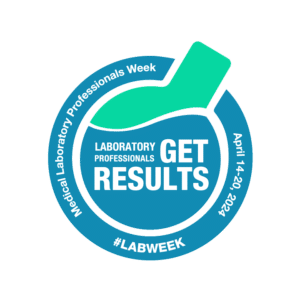
In recent years, menopause has stepped out of the shadows, with celebrities sharing their experiences, bringing more focus and attention to it.1 Even so, stigma, embarrassment, a lack of public awareness, and miscommunication mean that for many women, menopause still is either borne in quiet suffering or else over-medicalized as nothing more than a hormone deficiency requiring estrogen replacement.2
From March to June 2021, in a United Kingdom survey of 97,307 women, only 64% felt comfortable talking with healthcare professionals about menopause. Only 9% felt they had sufficient information about menopause and its symptoms.3
Eighty percent of women experience hot flashes that may last 10 years or more and are not only a cause of insomnia, alteration of cognition and discomfort, but may also contribute to heart disease.4
In the United States alone there are 8 million women with osteoporosis that is responsible for two million fractures a year; 25 percent of women over 50 die as a result of osteoporotic hip fracture. Yet only about 6% of women are reported to receive counseling and treatment of the consequences of menopause.
What’s Not Happening?
Frank, early discussions about menopause between doctors and their patients remain somewhat rare. There are a few reasons for that.
Fewer than one in five U.S. obstetrics and gynecology residents receives formal training in menopause medicine, cites a 2013 issue of Johns Hopkins Magazine.5 Nearly 80% of medical residents admit that they feel “barely comfortable” discussing or treating menopause.6
And the problem isn’t limited to the United States.
A survey of 3,400 healthcare professionals in China, whose results were published in 2020, showed roughly 1,500 had not received menopause management training in nearly a year.7 Although most interviewees offered some correct menopausal knowledge, nearly half failed to correctly identify the contraindications for menopause hormone therapy.
Then There’s the Time Factor – or Lack of It.
In the UK, the average general practitioner appointment is limited to 9.2 minutes. It is unlikely that patients can gain a comprehensive understanding of menopause in this time.8
Conversations about the risks and benefits of various treatments often require more time than the usual 15-minute slot that health insurance will typically reimburse for a routine medical visit, comments one reproductive endocrinologist in a recent New York Times article.9 “Family medicine generally doesn’t want to deal with this, because who wants to have a 45-minute-long conversation with somebody about the risks and benefits of hormone therapy? It’s nuanced and complicated.”
What’s more, one recently published study demonstrated that many women don’t start thinking about menopause until somewhere between the ages of 40 and 49, that is, when symptoms arise.10 This indicates a lack of preparedness for menopause, which is likely to make the process more overwhelming and psychologically taxing. Since many women are not clear about what symptoms are caused by menopause, delays in diagnosing the perimenopause and delays in advice and treatments occur.
And even though menstrual cycle changes are the first clue for many women that they are entering the menopause transition, for others, other symptoms may predominate, said Cynthia A. Stuenkel, MD, clinical professor at the University of California, San Diego, in a 2017 article from the American College of Physicians.11 “Up to 45% of women, almost half, could have early symptoms, and clinicians should stay open-minded when trying to recognize possible symptoms of menopause.”
There is good reason for treating symptoms early on. A 2018 study found a correlation between a risk of developing type 2 diabetes and the severity and duration of hot flashes and night sweats.12 Other studies demonstrate a slowing progression of osteoporosis if women are treated at the start of menopause.
Providing good, patient-centered menopause care is a challenge, but a very important focus for patients.
Steps Physicians Can Take
Providing good, patient-centered menopause care is a challenge, but a very important focus for patients. Physicians can create a welcoming environment that encourages patients to engage in early, frank conversations about menopause. Some suggestions for physicians:13
- Keep your knowledge of menopause symptom recognition, diagnosis and management up to date.
- Take an open and inquiring approach, considering menopause alongside other differential diagnoses.
- A patient’s perception of the doctor’s manner and attitude is important to a successful consultation, so be open, interested and empathic around menopause care.
- Consider ensuring that at least one member of the primary care team has interest and expertise in menopause care, and ensure patients are aware of this, referring patients ‘inhouse’ when appropriate.
- When initiating hormone replacement treatment, ensure a robust consent process, tailoring the discussion to each patient, based on their individual circumstances, wishes, expectations and concerns.
- Discuss available options with the patient, including the option to take no action, and the relevant benefits, risks and potential side effects.
- Explain your reasoning behind any recommendations in a way the patient can understand.
- Document the discussion and information shared in the patient’s medical record.
- Keep up to date with the indications for referral to specialist services – make the most of their expertise, especially in complex cases.
- As a practice, maintain or develop clear lines of communication with specialist services, e.g., through email or telephone.
Menopause has long had negative connotations in many societies—or else been ignored entirely, note the authors of a 2022 Lancet editorial.14 “A women's value should not be defined by the end of her fertility. On the contrary, this stage of life is an opportunity, a new beginning that can be lived richly, productively, fully, and in good overall health if society invests in women to help them prepare, cope, and thrive to reach their full potential in mid-life and beyond.”
References
- Managing the menopause in primary care, Medical Protection
- Attitudes towards menopause: time for change, The Lancet
- Managing the menopause in primary care, Medical Protection
- Talking About Menopause (Finally), The New York Times
- Why So Many Doctors Fail Women With Menopause Care, Next Avenue
- What Doctors Don’t Know About Menopause, AARP The Magazine
- Attitude and knowledge for menopause management among health professionals in mainland China, Taylor & Francis Online
- Women’s knowledge and attitudes to the menopause: a comparison of women over 40 who were in the perimenopause, post menopause and those not in the peri or post menopause, BMC Women’s Health
- Women Have Been Misled About Menopause, New York Times Magazine
- Women’s knowledge and attitudes to the menopause: a comparison of women over 40 who were in the perimenopause, post menopause and those not in the peri or post menopause, BMC Women’s Health
- Internist involvement crucial to easing early menopause, ACP Internist
- Why So Many Doctors Fail Women With Menopause Care, Next Avenue
- Managing the menopause in primary care, Medical Protection
- Attitudes towards menopause: time for change, The Lancet



Share Article